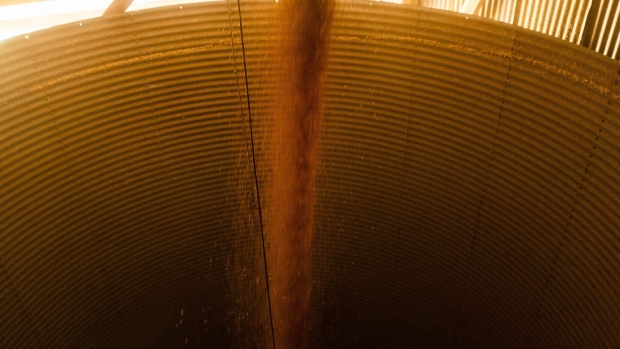Apr 26, 2024
Top Russia Grain Trader Changes Name Amid Dispute With Regulator
, Bloomberg News

(Bloomberg) -- Major Russian grain exporter TD Rif has accused Moscow of trying to control and inflate export prices, another escalation in a dispute between the government and one of the country’s biggest wheat traders.
The shipper accused the country’s agriculture ministry of encouraging inflated offer prices in a letter to a buyer earlier this month seen by Bloomberg. Rif said that authorities have punished those who don’t comply by denying the paperwork needed for export, among other measures.
In a response to a request for comment from Bloomberg, a Rif spokeswoman denied the company had anything to do with the letter.
“As market participants, we have become hostages to these manipulations, which are having an extremely negative impact on our position and reputation,” the April 10 letter said, adding that Moscow’s moves were also denting the competitiveness of Russian wheat internationally.
In a fresh twist on Friday, the firm said in a statement on its website that it was changing its name to Rodnie Polya LLC. Its press service said the new name better suits its business model.
Issues with government push-back on pricing have also disrupted Russian wheat exports from other traders earlier in the season.
Officials from the Russian agriculture ministry didn’t reply to emails seeking comment about the letter. The agriculture regulator Rosselkhoznadzor said that pricing and market regulation are not part of its mandate.
TD Rif’s ships have been getting stuck in ports, as Russia’s agricultural watchdog has faulted its cargoes for not meeting safety and quality standards, disrupting exports to key buyers including Egypt. The firm’s long-time owner has said cargoes are being unfairly blocked and that it’s under pressure to sell its assets at a low price.
Russian authorities recently held up two Egypt-bound vessels linked to the company — under circumstances that remain in dispute — prompting Cairo to step in to help resolve the matter.
Read more: Second Egypt Wheat Ship Stuck in Russia Sails After 3-Week Wait
Under the agriculture ministry’s policy, all offers from Russian exporters, including those in Egyptian tenders, “were made at a single, inflated price,” Rif’s letter alleged. Companies offering lower prices have faced “unfair sanctions” including the denial of phytosanitary approvals, it added.
Russian officials have been trying to enforce an informal price floor for exports for months. Higher prices would placate its farmers, upset by dwindling incomes, and potentially boost the Kremlin’s revenues. It’s unclear how effective these efforts have been.
Russia is the world’s top wheat exporter, and any sign of a slowdown in shipments could shift demand to other origins, potentially lifting global prices. Still, so far the spat hasn’t significantly impacted its overall export volumes according to consultant SovEcon.
(Corrects to note that TD Rif sent a denial before publication)
©2024 Bloomberg L.P.








